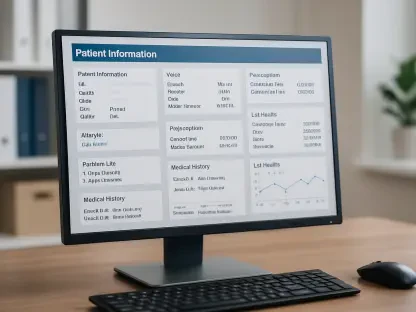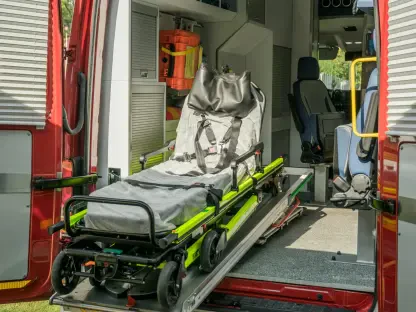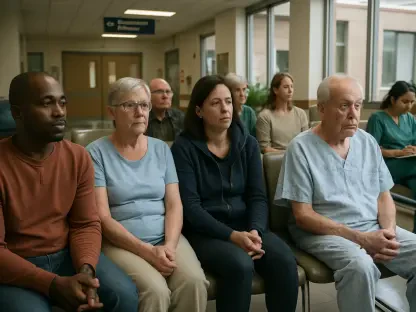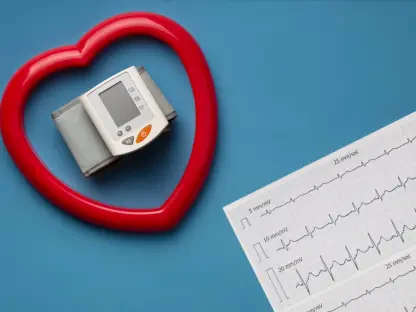Veterans, having made profound sacrifices to protect national security, deserve a health care system that fully addresses their unique and often complex medical needs resulting from military service. Across the country, countless individuals who have served in uniform face challenges like post-traumatic stress disorder, physical injuries, and long-term effects of toxic exposure—conditions that standard private health care providers are frequently unprepared to handle with the necessary depth and continuity.
Addressing Distinct Medical Challenges
Veterans often endure a spectrum of health issues directly linked to their time in service, ranging from mental health struggles like PTSD to physical ailments such as traumatic brain injuries and complications from toxic exposures during deployments. These conditions are rarely isolated; they demand an integrated approach that combines psychological counseling, physical rehabilitation, and ongoing social support. Unlike many civilian patients, veterans require health care providers who possess a deep understanding of military-specific trauma and the capacity to manage chronic disabilities over a lifetime. A dedicated system within the VA ensures that care is not fragmented but instead tailored to the intricate nature of service-related health challenges, offering a level of specialization that general medical facilities often lack. This focused expertise is vital for delivering consistent treatment plans that address both immediate needs and long-term well-being.
Beyond the complexity of their conditions, veterans also face the challenge of navigating a health care landscape that must account for the unique circumstances of their injuries and illnesses, often sustained in environments far different from civilian life. The lingering effects of combat, such as exposure to burn pits or chemical agents, can manifest years after service, requiring vigilant monitoring and adaptive care strategies. Private health care systems, while adept at handling common medical issues, frequently fall short in providing the continuity and cultural competence needed for such cases. A dedicated VA system prioritizes a holistic view of veterans’ health, ensuring that medical histories tied to military experiences are thoroughly documented and understood by providers trained in these specific contexts. This specialized framework is not just a convenience but a necessity to prevent gaps in care that could exacerbate already challenging conditions.
Unpacking Systemic Issues in the VA
Despite its critical role, the VA faces significant hurdles that hinder its ability to deliver optimal care, with a staggering $300 billion budget and a vast workforce not always translating into efficiency. Outdated technology, particularly in electronic health record (EHR) systems, contributes to delays in treatment and frustration among veterans trying to access services or process claims. Bureaucratic inefficiencies compound these problems, as even efforts to increase staffing have failed to resolve deeper operational flaws. Although recent years have seen progress—with over 1,500 system improvements and enhanced performance metrics since earlier setbacks—these steps are merely a starting point. Veterans continue to express dissatisfaction, underscoring the urgent need for comprehensive reforms to ensure the system matches the scale of their sacrifices with equally robust support.
Moreover, the technological shortcomings within the VA reveal a disconnect between the agency’s potential and its current reality, leaving many veterans caught in a cycle of delayed care and administrative red tape. The temporary pause in EHR deployments a few years ago exposed systemic vulnerabilities, yet it also paved the way for necessary recalibrations that are slowly bearing fruit. However, the pace of change remains a concern, as veterans deserve swift access to services without the burden of navigating outdated processes. Addressing these issues requires not just incremental fixes but a bold overhaul of operational practices to prioritize efficiency and responsiveness. The VA must evolve to meet modern standards, ensuring that the infrastructure supporting veterans’ health care is as resilient and dedicated as the individuals it serves.
The Backbone of Effective Care: Modern EHR Systems
At the heart of transforming veteran care lies the implementation of a modern, interoperable EHR system, which serves as an invisible yet indispensable foundation for seamless medical services. Such a system facilitates real-time communication among health care providers, eliminating the need for veterans to repeatedly recount their often painful medical histories during appointments. It also ensures that care is integrated across various specialties, a strength that the VA can maximize when technology functions optimally. While the Department of Defense has demonstrated success with initiatives like the Military Health System Genesis, the VA continues to lag, highlighting a critical gap that must be bridged through targeted technological advancements to meet veterans’ expectations for efficient, connected care.
Furthermore, the absence of a fully functional EHR system within the VA not only hampers individual patient experiences but also undermines the broader goal of delivering coordinated, high-quality health care to a population with unique needs. Veterans often move between different facilities or require input from multiple providers, making data sharing a cornerstone of effective treatment. A robust EHR platform can track complex care plans, monitor medication interactions, and provide a comprehensive view of health trends over time—capabilities that are essential for managing chronic conditions stemming from military service. Investing in this technology is not merely an upgrade; it represents a commitment to reducing frustration and enhancing trust in the system, ensuring that veterans receive the streamlined, respectful care they have earned through their service.
Limitations of Private Health Care Options
While legislative efforts like the VA MISSION Act have expanded access to private health care for some veterans, these alternatives often fail to meet the specialized demands of military-related medical issues. Many private hospitals and clinics lack the training and resources to address combat trauma or coordinate the lifelong care that veterans frequently require. Accessibility poses another barrier, particularly in rural or underserved regions where private facilities may be scarce or ill-equipped. For uninsured veterans, the financial strain of private care can be overwhelming, contrasting sharply with the VA’s ability to offer services tailored to service-connected conditions without the same cost burdens, recognizing veterans as individuals with distinct histories.
Additionally, the cultural disconnect between private providers and veterans can hinder effective treatment, as the nuances of military service and its health impacts are often misunderstood outside the VA framework. Private systems are typically designed for a general population, lacking the infrastructure to provide the comprehensive, interdisciplinary care that addresses both physical injuries and mental health challenges in a unified manner. The VA, despite its flaws, is built to view veterans through the lens of their service, ensuring that care plans honor their unique experiences rather than treating them as standard patients. This fundamental difference underscores why relying solely on private options risks leaving veterans underserved, reinforcing the need for a dedicated system that prioritizes their specific circumstances over generic solutions.
Honoring a Deep-Rooted National Commitment
Ensuring veterans receive dedicated health care transcends the realm of policy or technology—it embodies a profound moral and contractual duty rooted in national values. Modernizing the VA is not simply about reducing wait times or deploying new software; it reflects a commitment to respect, accountability, and tangible results for those who have defended the country. Veterans seek practical outcomes—whether it’s access to well-fitted prosthetics, impactful therapy sessions, or medical teams who truly comprehend their sacrifices—rather than hollow gestures of appreciation. A specialized system within the VA serves as a testament to this obligation, ensuring that care delivery aligns with the honor owed to every individual who has served.
Moreover, this national promise demands a proactive stance in addressing veterans’ needs as a reflection of societal gratitude, ensuring that their transition to civilian life is supported by a health care system worthy of their contributions. Failing to provide a dedicated framework risks eroding trust, sending a message that the sacrifices made in uniform are undervalued. The VA must stand as a beacon of reliability, offering not just medical treatment but a sense of recognition for the unique burdens veterans carry. This commitment extends beyond individual care to encompass a broader ethos of upholding American principles, where supporting veterans through a specialized system becomes a shared responsibility that strengthens the fabric of the nation.
Building a Path to Lasting Improvement
Looking ahead, the journey to a more effective VA system hinges on strategic investments in technology, refined management practices, and a genuine embrace of veteran feedback to restore confidence in the agency. International models, such as Denmark’s clinician-driven health care modernization, provide actionable insights, demonstrating how tailored systems built with user input can overcome initial setbacks to achieve smoother operations. With plans to resume EHR deployments at eleven facilities in 2026, there is a promising opportunity to create a veteran-centric framework that directly addresses expressed needs and eliminates longstanding frustrations. These steps mark a critical shift toward prioritizing efficiency and engagement in care delivery.
Reflecting on past efforts, the incremental progress made in recent years has laid a foundation for optimism, as system enhancements tackled some of the most pressing technological gaps that once plagued the VA. Yet, the work ahead requires sustained dedication to ensure that every veteran experiences care that feels personal and responsive. By learning from global successes and maintaining a focus on veterans’ voices, the path forward can transform challenges into enduring solutions. Committing to these advancements fulfills a historic pledge, ensuring that those who served are supported with the dignity and effectiveness they earned through their unwavering dedication to the nation.









